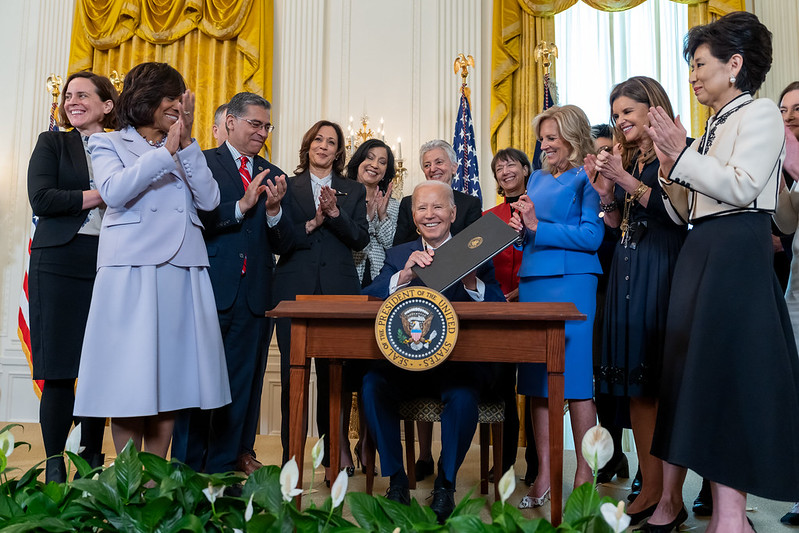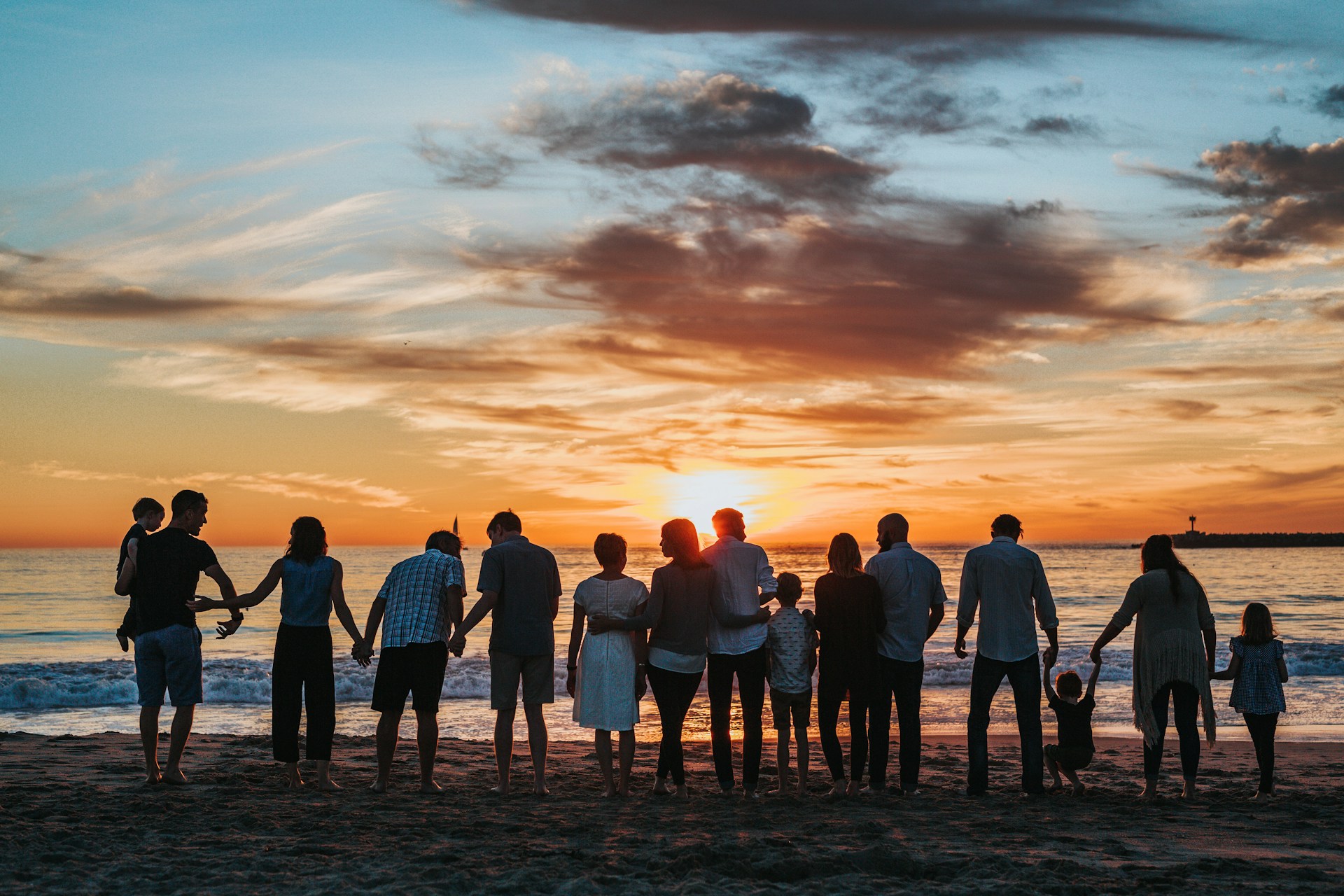What U.S. College Graduates Need to Know About the President’s New Executive Action on Immigration (Dreamers and Undocumented Individuals)
Last week the world of immigration experienced a seismic event. The President announced a historic executive action on immigration that will forever change the lives of undocumented spouses of U.S. citizens and streamline the nonimmigrant work visa process for DACA recipients and other individuals. In this blog post, we share with you everything we know about how the executive order will benefit U.S. college graduates seeking work visas.
President Biden’s executive action was announced on the 12th anniversary of the Deferred Action for Childhood Arrivals (DACA) program, first enacted under the Obama administration. In addition to providing individuals protection from deportation, the order provides relief to potentially thousands of DACA recipients and other Dreamers who have earned academic degrees in the U.S. and are seeking employment opportunities in fields related to their course of study.
In doing so, the government will allow Dreamers to explore existing employment-based visa options such as H-1B, TN, L, O visas, etc.
Key Highlights
What the Executive Order does
- Work Visas: DACA recipients and other undocumented individuals could soon apply for expedited waivers and receive temporary work visas, granting them legal status to live and work in the United States without fear of deportation
- Eligibility: To be eligible for nonimmigrant work visas, individuals must have earned a degree at an accredited U.S. institution of higher education in the United States, and have an offer of employment from a U.S. employer in a field related to their course of study
- Path to Residency: There is potential for these temporary work visas to create a path to permanent residency through employment-based sponsorship options.
Why This Matters
Due to the contentious political climate, the U.S. congress has failed to bring about meaningful immigration reform that provides a legal pathway for Dreamers to remain in the United States and positively contribute to the U.S. economy, utilizing the skills and education they gained here in the United States.
For the first time ever, the government will direct the State Department (DOS) and Department of Homeland Security (DHS) to issue clarifying guidance making it possible for DACA recipients and other individuals without legal status to apply for expedited waivers and temporary work visas.
How will this process work?
While complete details have not yet been released, the government will facilitate expedited review of waivers of visa ineligibility by clarifying that it is within a Consular officer’s discretion to grant a waiver for such individuals, making it easier for them to apply for work visas.
212(d)(3) Waivers and the Ten-Year Unlawful Presence Bar
Under current immigration law, DACA recipients and other undocumented immigrants face additional barriers to obtaining temporary work visas due to their unlawful presence. Under the law, anyone who has accrued unlawful presence for a year or more is subject to a ten-year bar that is triggered upon departing the United States. As a result, the ten-year bar prevents an individual from re-entering the United States for at least ten-years after their departure. This has been a long-standing problem for undocumented immigrants because the bar is triggered even when an individual leaves to obtain a visa at a U.S. Consulate or Embassy abroad.
To overcome the ten-year bar, work visa applicants are forced to obtain a discretionary waiver from the U.S. Customs and Border Protection’s Admissibility Review Office. This waiver is known as the INA 212(d)(3) waiver and is designed to excuse certain grounds of inadmissibility including unlawful presence. An approved waiver removes the bar and allows such individuals to apply for temporary work visas at U.S. Consulates and Embassies. Only once the U.S. work visa is issued, can the individual re-enter the United States in nonimmigrant visa status and work for their employer pursuant to the terms of the employment visa.
How might the Waiver Process Differ moving forward?
The President’s executive action aims to provide more certainty and speed surrounding the 212(d)(3) waiver process, so that U.S. employers and their employees can make informed decisions to evaluate whether they want to pursue applying for temporary work visas at U.S. consulates abroad.
However, it is still unclear what the waiver application process might look like. The State Department has simply said that it will provide updated guidance to consular officials via the Foreign Affairs Manual (FAM) within 30 days instructing them to implement the President’s new policy.
According to the State Department its guidance, “will encourage consular officers to consider recommending expedited review of waiver requests in conjunction with certain nonimmigrant visa applications overseas.
This will result in certain individuals to potentially more quickly receive work visas if DHS approves a waiver of ineligibility. . . . [T]his policy will clarify when consular officers should consider recommending waivers, so that individuals and employers can make informed decisions and streamline the process so that those who qualify can get to work quickly.”
Immigration advocates are hopeful that the government will predetermine an individual’s eligibility for a waiver before their departure from the United States, to ensure they do not face ramifications when applying for a visa at the Consulate. Such a process would make the 212(d)(3) waiver process more predictable and reassure employers that visas can be issued faster than before.
Immediate Action Required
While we await further information to become available, U.S. college graduates should gather their credentials, including any potential job offers, and submit them for attorney review to determine if they are potentially eligible for an employment-based visa.
FAQs provided by the State Department
Click here for the complete FAQ.
Q: What will these clarifications mean for current Nonimmigrant Visa ineligibility waiver processing steps?
- These clarifications will describe when consular officers should consider recommending that the Department of Homeland Security (DHS) waive ineligibility for these applicants on an expedited basis, in conjunction with visa applications overseas. However, the processing steps will remain the same.
- Waiver requests are adjudicated by the Department of Homeland Security, U.S. Customs and Border Protection’s Admissibility Review Office.
- For additional information related to visa ineligibility waivers, please visit our website: Ineligibilities and Waivers: Laws (state.gov).
Q: How can an individual apply for a petition-based nonimmigrant work visa?
- Before an applicant can apply for an H-1B or other temporary worker visa, U.S. Citizenship and Immigration Services (USCIS) must generally first approve a Petition for a Nonimmigrant Worker, Form I-129. For more information about the petition process, see Working in the U.S.and Temporary (Nonimmigrant) Workers on the USCIS website. Once USCIS approves the petition, it will send the prospective employer a Notice of Action, Form I-797.
- Individuals may apply for a nonimmigrant visa after USCIS has approved the petition. There are several steps in the visa application process. The order of these steps and how applicants complete them may vary at the U.S. embassy or consulate where they apply. Please visit the embassy or consulate website for instructions on how to apply.
- Individuals will need to complete the Online Nonimmigrant Visa Application, Form DS-160 and schedule an appointment for their visa interview at any U.S. Embassy or Consulate.
Q: If an applicant needs a visa ineligibility waiver, how can they request one as part of a standard interview?
- Applicants who are denied a visa will generally be notified by the consular officer of the basis for the ineligibility, and whether they are eligible for a waiver of their ineligibility.
- If an applicant is ineligible for a visa based on certain grounds of inadmissibility in Section 212(a) of the Immigration and Nationality Act, they may be eligible for a waiver.
- Waiver requests are adjudicated by the Department of Homeland Security, U.S. Customs and Border Protection’s Admissibility Review Office, based on a recommendation from the Department of State.
- For additional information related to visa ineligibility waivers, please visit our website: Ineligibilities and Waivers: Laws (state.gov)
- For questions related to waiver approvals, we refer you to the Department of Homeland Security.
Q: How long are current interview appointment wait times for employment-based nonimmigrant visas at overseas posts?
- Currently, interview wait times for H-1B visas are minimal at most of our overseas posts.
Please visit our website to check the current interview appointment wait times for employment-based visas at our overseas posts: U.S. Visas (state.gov)
Q: How will forthcoming edits to the Foreign Affairs Manual (FAM) clarify existing guidance to consular officers?
- Upcoming FAM updates will clarify when consular officers should recommend that DHS grant a waiver of the applicant’s ineligibility, consistent with the waiver process that is already available under existing law to individuals seeking nonimmigrant visas, and consistent with Department regulations that describe the types of cases in which consular officers should consider recommending a waiver of ineligibility. It is not conferring any new benefits and is not limited to DACA recipients.
- These updates will also encourage consular officers to consider recommending expedited review of waiver requests in conjunction with certain nonimmigrant visa applications overseas, consistent with existing Department regulations and guidance.
- This will result in certain individuals to potentially more quickly receive work visas if DHS approves a waiver of ineligibility.
- While leaving the United States to apply for a visa is not without risks, this policy will clarify when consular officers should consider recommending waivers, so that individuals and employers can make informed decisions and streamline the process so that those who qualify can get to work quickly.
Q: When will the guidance be issued?
- Updated guidance for consular officers will be issued within the next 30 days.
Conclusion
Our team remains committed to helping you and your employer navigate this process to meet your immigration goals. To set up a consultation, we invite you to contact our office to understand whether you are eligible for a waiver and what employment-based visa options are most suitable for you. We look forward to serving you.
For more information, please check out our helpful links below.
Contact Us. If you would like to schedule a consultation, please text 619-569-1768 or call 619-819-9204.
Helpful Links
JOIN OUR NEW FACEBOOK GROUP
Need more immigration updates? We have created a new facebook group to address the impact of the new executive order and other changing developments related to COVID-19. Follow us there.
For other COVID 19 related immigration updates please visit our Immigration and COVID-19 Resource Center here.




